Breaking the Present Deadlock in the Armenia-Azerbaijan Peace Process Will Remain a Formidable Task in 2025
 By Vasif HUSEYNOV, PhD, Head of Department, AIR Center, Adjunct Lecturer, ADA and Khazar Universities, Baku By Vasif HUSEYNOV, PhD, Head of Department, AIR Center, Adjunct Lecturer, ADA and Khazar Universities, Baku
On 10 December, the Center for Analysis of International Relations (AIR Center), a Baku-based political think tank closely affiliated with the Azerbaijani government, held a high-level international conference titled “The Main Obstacle to a Peace Agreement Between Azerbaijan and Armenia.” The conference identified the territorial claims in Armenia’s constitution against Azerbaijan as the primary obstacle to peace. Elnur Mammadov, Azerbaijan's Deputy Foreign Minister, contributed to the discussion as keynote speaker, clarifying the position of the Azerbaijani government on the issue. The event also featured James Sharp, former UK Ambassador to Azerbaijan, and Židas Daskalovski, adviser to the North Macedonian president, who shared insights from their countries’ experiences in amending constitutions to resolve interstate disputes. READ MORE
New Azerbaijan-Iran Railway Agreement Grapples With Regional Tensions
 By Fuad Shahbazov, Baku-based independent regional security and defence analyst By Fuad Shahbazov, Baku-based independent regional security and defence analyst
On October 15, Chairman of Azerbaijan Railways Rovshan Rustamov arrived in Tehran to meet his Iranian counterpart Jabbar Ali Zakeri Sardroudi to discuss the construction of a railway line linking Azerbaijan’s East Zangezur region and its Nakhchivan exclave through Iran. The meeting came amid intensive diplomatic negotiations between Azerbaijan and Iran regarding the Aras Corridor transit route linking Azerbaijan to Nakhchivan and further to Türkiye via Iran after a period of silence and diplomatic rifts between the two neighbors. The Aras Corridor project, strategically significant for both Baku and Tehran, emerged following Azerbaijan’s persistent efforts after the 2020 Karabakh War to establish regional communication lines, particularly a land route, through Armenia’s Syunik province to Nakhchivan and Türkiye, known as the Zangezur Corridor. The ongoing confrontation between Azerbaijan and Armenia over the land route through Syunik province has been a major point of contention, delaying the signing of a final peace treaty between Baku and Yerevan. READ MORE
- December 20, 2024 09:14AM
The Geopolitical Aspects of the India-Armenia Partnership


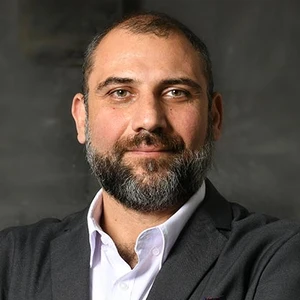
By Nvard CHALIKYAN, Research Fellow, APRI Armenia
Benyamin POGHOSYAN, PhD, Senior Research Fellow, APRI Armenia
Verej ISANIANS, Senior Editor, APRI Armenia
The South Caucasus is an important Eurasian political and economic hub, as its transport networks have the potential to facilitate travel across the continent. Control over the South Caucasus grants access to the Black Sea and the Caspian Sea basin, serving as a gateway to Central Asia and the Greater Middle East. Given its strategic importance, regional powers such as Russia, Türkiye, and Iran have vied for influence in the South Caucasus for centuries. In recent years, the demand for alternative transport corridors has surged amid the ongoing Ukraine war, sanctions on Russia, conflicts in the West Asia (Middle East) region, and the resulting difficulties with traditional supply routes such as the Suez Canal. Consequently, the South Caucasus has become increasingly important as a link between Asia, Europe, and Russia.
READ MORE
- December 20, 2024 09:08AM
The Multidimensional Foreign Policy of New Uzbekistan 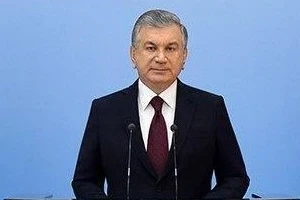 Bakhram Sotiboldiev,
Bakhram Sotiboldiev,
Head of the Department of the Institute for Strategic and Regional Studies under the President of the Republic of Uzbekistan
In today's rapidly changing world, Uzbekistan confidently positions itself as one of the key players on the international stage. The country’s foreign policy, reinvigorated with the election of Shavkat Mirziyoyev as President in 2016, demonstrates impressive results, transforming the republic into a significant center for regional and global diplomacy. READ MORE
- December 16, 2024 08:56AM
In Uzbekistan, strengthening interethnic and interfaith solidarity is always a priority of state policy 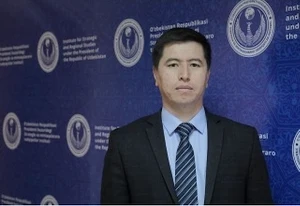 Samariddin Sattorov,
Samariddin Sattorov,
Chief Researcher of the Institute for Strategic and Regional Studies under the President of the Republic of Uzbekistan
In recent years, geopolitical tensions have been increasing in different regions of the world, and interethnic conflicts and contradictions on religious grounds continue to worsen.
In the context of such instability, maintaining an open and constructive dialogue between different religious and cultural groups is becoming vital. Strengthening religious tolerance helps to create an atmosphere of mutual understanding, respect and generosity in society, which in turn alleviates tensions and prevents the escalation of conflicts. READ MORE
Uzbekistan exports its products to 115 countries  Export is a key driver of the economy, enabling the development of production, the creation of new jobs, and the growth of GDP. For this reason, every state seeks to support enterprises aiming to expand their exports to international markets. This article explores the comprehensive measures of direct support for exporters in Uzbekistan.
Export is a key driver of the economy, enabling the development of production, the creation of new jobs, and the growth of GDP. For this reason, every state seeks to support enterprises aiming to expand their exports to international markets. This article explores the comprehensive measures of direct support for exporters in Uzbekistan.
Export support in Uzbekistan is carried out systematically, strictly adhering to the goal set in the Uzbekistan 2030 Strategy — increasing the share of the private sector in exports to 60%.
Here are some indicative figures: from 2017 to 2023, Uzbekistan’s total exports reached $120 billion. In 2023 alone, export volumes amounted to $24 billion, marking a 64% increase compared to 2017.
READ MORE
Uzbekistan exports its products to 115 countries  Export is a key driver of the economy, enabling the development of production, the creation of new jobs, and the growth of GDP. For this reason, every state seeks to support enterprises aiming to expand their exports to international markets. This article explores the comprehensive measures of direct support for exporters in Uzbekistan.
Export is a key driver of the economy, enabling the development of production, the creation of new jobs, and the growth of GDP. For this reason, every state seeks to support enterprises aiming to expand their exports to international markets. This article explores the comprehensive measures of direct support for exporters in Uzbekistan.
Export support in Uzbekistan is carried out systematically, strictly adhering to the goal set in the Uzbekistan 2030 Strategy — increasing the share of the private sector in exports to 60%.
Here are some indicative figures: from 2017 to 2023, Uzbekistan’s total exports reached $120 billion. In 2023 alone, export volumes amounted to $24 billion, marking a 64% increase compared to 2017.
READ MORE
The Middle East Viewed from Eurasia: It’s All about Realpolitik  By Yeghia TASHJIAN, Beirut-based regional analyst and researcher, columnist, "The Armenian Weekly” By Yeghia TASHJIAN, Beirut-based regional analyst and researcher, columnist, "The Armenian Weekly”
In his book “The Tragedy of Great Power Politics” one of the world’s leading realist scholars John J. Mearsheimer argues that in an unbalanced multipolarity, the balance of power is so asymmetrically distributed in favour of one side, that other great powers have no choice but to come together to balance the hegemonic power. This is the only rational choice among other great powers. As such, this kind of international order is fragile and always prone to wars. Within this logic, many would assume that Eurasian powers such as Russia and China should have fully backed Iran or its non-state allies in the Middle East to defeat Israel, or at least contain US interests in the region. Interestingly, this is not the case. Moscow, Beijing, and New Delhi (another rising Eurasian power) are engaging in strategic balance and realpolitik to assess the situation, waiting for the outcome of the US presidential elections, and aiming to contain any spillover effect to their zone of influence.
READ MORE
- November 21, 2024 08:53AM
Türkiye-Russia Trade Declines Amid Western Sanctions
 By Fuad Shahbazov, Baku-based independent regional security and defence analyst By Fuad Shahbazov, Baku-based independent regional security and defence analyst
Türkiye’s Statistics Department reported in July that exports to Russia had shrunk by 28 percent from the previous year due to continuous pressure from US sanctions against Russia. The value of these exports reached only $4.16 billion in the first quarter of 2024, representing a decline from a peak of $5.80 billion the previous year. Imports surged in 2021 to a peak of $27.7 billion just before the outbreak of Russia’s war in Ukraine, and have since fallen, though they still remain far above 2020 levels. Since Russia’s invasion, the West has imposed harsh economic sanctions on the country to exert pressure on the country. Since then, however, Moscow has gone to enormous effort to circumvent those sanctions and maintain international trade. In this regard, Türkiye, a long-time Russian energy importer, has become an outlet for the Russian global economy. Turkish-Russian relations have fluctuated over the course of the war, as Türkiye tries to maintain a balanced position between the West and Russia, as well as with other regional players in the Middle East. READ MORE
- November 21, 2024 08:51AM
What the President of Uzbekistan regularly talks about with entrepreneurs of the country  Dilafruz Khusanova,
Dilafruz Khusanova,
Head of the Press Service of the Chamber of Commerce and Industry of Uzbekistan
Agriculture is one of the leading sectors of Uzbekistan’s economy.
The annual open Dialogue of President Shavkat Mirziyoyev with entrepreneurs, which has already become a tradition, once again gave impetus to new ideas and projects for representatives of all business categories. This year, discussions at the main platform in the world of Uzbek business took place on August 20 in Nukus. At the event, the Head of State announced new initiatives in five areas. READ MORE
The Tale of Two Elections: Implications for the South Caucasus  Benyamin POGHOSYAN, PhD, Chairman, Center for Political and Economic Strategic Studies Benyamin POGHOSYAN, PhD, Chairman, Center for Political and Economic Strategic Studies
As the US presidential election approaches, many are assessing the implications of a Donald Trump or Kamala Harris administration in different parts of the world. Commentators on the South Caucasus are no exception. The Biden administration established a Washington format to facilitate Armenia–Azerbaijan negotiations and took steps to further US–Armenia relations, making a decision to upgrade the status of a strategic dialogue launched in 2019 to a strategic partnership commission. The Biden administration also invested efforts in thawing relations between Armenia and Turkey, viewing this as essential for regional stability. US officials view normalising Armenia–Turkey relations as crucial for reducing Russian influence and decreasing Armenia’s dependency on Russia.
READ MORE
“Green” development of New Uzbekistan and the fight against climate change  Lola Rakhmanbaeva,
Advisor to the Minister of Ecology, Environmental Protection, and Climate Change on Information Policy- Press Secretary
Lola Rakhmanbaeva,
Advisor to the Minister of Ecology, Environmental Protection, and Climate Change on Information Policy- Press Secretary
Agriculture is one of the leading sectors of Uzbekistan’s economy.
As a country with unique natural resources and rich cultural heritage, Uzbekistan is increasingly aware of the need for active action in the fight against climate change. The country is taking a number of measures and initiatives aimed at achieving sustainable and green development, which plays a key role in global efforts to mitigate the effects of climate change. READ MORE
Is the Balkan Region Israel’s Newfound Interest?
 By Fuad Shahbazov, Baku-based independent regional security and defence analyst By Fuad Shahbazov, Baku-based independent regional security and defence analyst
Israeli President Isaac Herzog concluded his historic first visit to Albania in September, shortly after his first-ever trip to Serbia, where both sides agreed to deepen bilateral cooperation amid Israel's extending military campaign against Hamas and Hezbollah in Southern Lebanon. Although the recent intensive diplomatic dialogue between Israel and Balkan states is gaining more impetus, it is not a new phenomenon. In the last five years, much has been done to ensure Israel’s expanding diplomatic, security, and economic ties with the Balkans, particularly with Albania and Serbia. In light of the worsening geopolitical tensions in the Middle East after the Hamas attack on Israel in October 2023 and Israel’s large-scale military campaign in Gaza and Southern Lebanon, Tel Aviv sought to build new alliances and partnerships at a critical time. READ MORE
Türkiye Demonstrates Increased Interest in BRICS Membership
 By Fuad Shahbazov, Baku-based independent regional security and defence analyst By Fuad Shahbazov, Baku-based independent regional security and defence analyst
On June 11, Turkish Foreign Minister Hakan Fidan attended a session of the BRICS group (a loose political-economic grouping originally consisting of Brazil, Russia, India, China, and South Africa) in Moscow. While there, he met with Russian President Vladimir Putin, Foreign Minister Sergei Lavrov, and Russian Security Council Secretary Sergei Shoigu. During the face-to-face meeting with Putin, Fidan discussed bilateral economic and political relations, focusing on the geopolitical turmoil in the Middle East caused by the war in Gaza. Putin vowed to “fully support” Turkish membership in BRICS and build stronger ties to facilitate further economic cooperation. Fidan’s visit to Russia came shortly after he visited China, where he reiterated Ankara’s willingness to join BRICS and the Shanghai Cooperation Organization (SCO). These pronouncements have raised eyebrows in the West. US Ambassador to Türkiye Jeff Flake declared that Türkiye’s place is “in the West” and voiced his hope that Ankara would decide against joining the bloc. READ MORE
Strengthening the rights of citizens in the area of freedom of receiving and disseminating information in the new Uzbekistan  Karine Javakova,
Karine Javakova,
Head of the Department of State and Legal Disciplines and Ensuring Human Rights of the Academy of the Ministry of Internal Affairs of the Republic of Uzbekistan, Doctor of Philosophy, Professor
Uzbekistan has created a solid legal framework to ensure freedom of speech and information, as well as the development of the media, improvement of the legal basis for the activities and protection of the professional rights of journalists. Considering that the liberalization of the information sphere and its development are priority tasks in the construction of the New Uzbekistan, after the constitutional reform, the articles devoted to these rights were significantly expanded. READ MORE
US and EU in the South Caucasus: Active Engagement, Uncertain Future  By Benyamin POGHOSYAN, PhD, Chairman, Center for Political and Economic Strategic Studies By Benyamin POGHOSYAN, PhD, Chairman, Center for Political and Economic Strategic Studies
The 2020 Nagorno-Karabakh war and the onset of the Russia-Ukraine conflict in February 2022 have dramatically disrupted the status quo in the South Caucasus, thrusting the region into the center of regional and global power rivalries. To varying degrees, Russia, the United States, the European Union, Turkey, Iran, Israel, France, India, China, and Pakistan are involved in the South Caucasus, creating a complex nexus of overlapping and diverging interests shaping the region’s geopolitical present and future. In recent years, the United States and the European Union have increased their presence in the South Caucasus. However, potential change in leadership in Washington and the shifting priorities in the forthcoming EU legislative cycle could significantly alter their engagement in the region. The Biden Administration has pursued active engagement in the South Caucasus. The United States has been one of the main mediators in Armenia-Azerbaijan negotiations, organizing several meetings between Armenian and Azerbaijani foreign ministers in Washington from 2022-2024 and the meeting between Prime Minister Nikol Pashinyan and President Ilham Aliyev in February 2023 in Munich.
READ MORE
Uzbekistan’s renewed electoral system a key factor in the advancement of representative democracy  Shuhrat Bafayev, Shuhrat Bafayev,
Chairman of the Committee for Democratic Institutions, Nongovernmental Organizations and Citizens’ Self-Government Bodies, Legislative Chamber of the Oliy Majlis of the Republic of Uzbekistan
Over the years of independent development Uzbekistan firmly guided by the principles of universal, equal and direct suffrage in secret voting, has progressively implemented international electoral standards into its electoral legislation. In 2017, in his first Address to the Parliament, the President of Uzbekistan Shavkat Mirziyoyev suggested that the current national electoral legislation does not ensure its harmonization and proposed to develop an Electoral Code that meets international norms and standards. Thus, the Electoral Code was adopted in 2019, incorporating more than 30 new democratic norms for organizing and conducting election processes. The approval of the Code marked the dawn of a new stage in the development of representative democracy in the country. READ MORE
CERR: IMF Estimates Uzbekistan's GDP at $101.6 Billion  According to the IMF's assessment, the nominal GDP of the Republic of Uzbekistan in 2023 increased by 125.6 trillion sums ($10.7 billion) and amounted to 1,192.2 trillion sums ($101.6 billion). According to the IMF's assessment, the nominal GDP of the Republic of Uzbekistan in 2023 increased by 125.6 trillion sums ($10.7 billion) and amounted to 1,192.2 trillion sums ($101.6 billion).
CERR hosted a discussion among experts and academics regarding a study conducted by the Statistics Agency in collaboration with the IMF. The primary goal of this study was to assess the size of the unobserved economy in Uzbekistan and examine its impact on other macroeconomic indicators. READ MORE
What is behind the Azerbaijan–Pakistan love affair?  By Benyamin POGHOSYAN, PhD, Chairman, Center for Political and Economic Strategic Studies By Benyamin POGHOSYAN, PhD, Chairman, Center for Political and Economic Strategic Studies
Recently, Azerbaijan–Pakistan ties have grown significantly through economic and military-technical cooperation. Pakistan threw its full support behind Azerbaijan during the 2020 Nagorno-Karabakh war, supplying weapons and providing training for Azerbaijani special forces. When Azerbaijan claimed victory in November 2020, the streets of Baku were full of Pakistani flags. Relations grew closer still after 2020, with intensive negotiations to buy Pakistani-made military jets and supply Azerbaijani gas to Pakistan. They discussed a series of joint projects worth $2 billion, setting up a bilateral committee to develop the projects. Most importantly, President Aliyev expressed his full support for Pakistan on the issue of Kashmir, claiming that international law and justice are on the side of Pakistan.
READ MORE
Uzbekistan plans to increase exports of electrical products to Europe, countries of South Asia and the Middle East 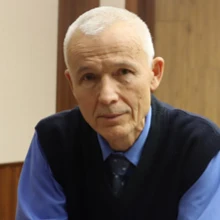 Yuri Kutbitdinov, Yuri Kutbitdinov,
chief Research Officer of the Center for Economic Research and Reforms under the Administration of the President of the
Republic of Uzbekistan
There are about a thousand manufacturing enterprises operating in the electrical engineering sector of Uzbekistan, most of them small, producing over two thousand types of products. Almost all enterprises in the industry are privately owned. The total number of people employed in the industry exceeds 35,000.
The 76 largest enterprises in the industry, which produce over 90% of all electrical engineering products, are members of the Association of Electrical Engineering Manufacturers (UzEltechSanoat). Of these, 18 enterprises manufacture electrical wires and cables, 27 enterprises manufacture household appliances, and 32 enterprises manufacture power transformers and other electrical products.
READ MORE
Human dignity and the benefits of the people in New Uzbekistan – high values  Khudoyberdi Khaknazarov Khudoyberdi Khaknazarov
Doctor of History
It is not an exaggeration to say that in the historical conditions where humanity is going through a difficult period, where contradictions and conflicts are intensifying and seriously undermining stability, in the multi-ethnic New Uzbekistan, human dignity and the interests of the people are recognized as the highest values, and in this regard, it is becoming an example and model for many countries of the world.
Because sustainable development can be achieved first of all by valuing and honoring people, creating conditions for the population to live well today, and realizing the high trust and responsibility of the population for the future.
READ MORE
Uzbekistan: A Course for Continuing Intensive Reforms in Youth Policy  Bekzod Jurabayev Bekzod Jurabayev
Chief scientific researcher of the Institute of Legislation and Legal Policy under the President of the Republic of Uzbekistan, Chairman of the Council of Young Scientists of the Institute
Uzbekistan is a country of youth. According to statistical data, about 60% of Uzbekistan's population is under the age of 30. Thus, over 18 million residents of Uzbekistan are young people, and by 2040 this number could reach 25 million. This creates unique opportunities and specific challenges for the state in terms of providing education, employment, and social integration for the youth. On February 21 of this year, a Presidential Decree approved the State Program for the implementation of the "Uzbekistan - 2030" Strategy in the Year of Support for Youth and Business. It outlines a number of tasks aimed at addressing the problems faced by young people and realizing their potential.
READ MORE
Armenia’s European aspirations 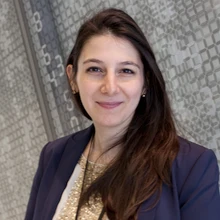  By Anahide PILIBOSSIAN, Vice President of Strategy and Development, APRI Armenia By Anahide PILIBOSSIAN, Vice President of Strategy and Development, APRI Armenia
Benyamin POGHOSYAN, PhD, Chairman, Center for Political and Economic Strategic Studies
Despite economic challenges and existing agreements with the Eurasian Economic Union, Armenia seeks closer alignment with the EU.
The recent statement of the Armenian Foreign Minister in the margins of the Antalya Diplomatic Forum denotes Armenia’s desire to join the European Union. This aspiration raises important questions on Armenia’s current position and options, which this article seeks to shed light on. At the same time, today’s complicated geopolitical environment highlights the need for the EU to formulate a strategic vision for the region. Between Pax Europa and Pax Russica, Armenia first went with the latter. However, following Yerevan’s defeat in the second Nagorno-Karabakh War and the military takeover of the region by Azerbaijan, despite the presence of the Russian peacekeepers, Armenia has now opted for the former. It stated its desire, backed by the EU, to join the Black Sea energy cable project (from which it has been excluded, reportedly as a result of pressures from Azerbaijan) and promote a regional infrastructure and connectivity project called the Crossroad of Peace, embracing, as European leaders did after World War II, the peace-building effects of economic regional integration projects.
READ MORE
What does the India-Iran Chabahar port deal mean for Armenia?  By Yeghia TASHJIAN, Beirut-based regional analyst and researcher, columnist, "The Armenian Weekly” By Yeghia TASHJIAN, Beirut-based regional analyst and researcher, columnist, "The Armenian Weekly”
On May 13, 2024, Iran and India signed a historic deal under which New Delhi was granted the right to develop and operate the Iranian port of Chabahar on the Gulf of Oman. India has been eying this port for the past two decades to export goods to Iran, Afghanistan and Central Asian countries and bypass the Chinese-developed ports of Gwadar and Karachi in Pakistan. Commenting on the deal after the signing ceremony in Tehran, India’s Shipping Minister Sarbananda Sonowal said, “Chabahar Port’s significance transcends its role as a mere conduit between India and Iran; it serves as a vital trade artery connecting India with Afghanistan and Central Asian Countries.” Under this agreement, the Indian Ports Global Limited (IPGL) company will invest $120 million in the port with an additional $250 million in financing. Within this context, Indian Foreign Minister Subrahmanyam Jaishankar told reporters in Mumbai that this deal will open the path for new, larger investments to be made in the port.
READ MORE
Uzbekistan: the fight against corruption is a continuous process  Nilufar Doniyorkhodjaeva, Nilufar Doniyorkhodjaeva,
Head of Department Development Strategy Center,
Tashkent, Uzbekistan
Uzbekistan has been undergoing a transformational journey since it changed political leadership in 2016. The nation is implementing extensive reforms aimed at spanning anti-corruption measures, business climate enhancements, judicial reforms, improving labour conditions, administrative efficiency, protection of human rights, and good governance.
READ MORE
|
|